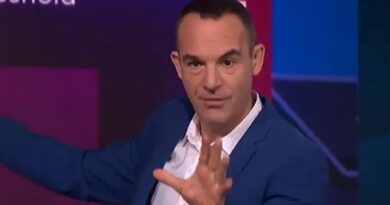BBC TV licence fee to rise by 6.6% in days – full list of people who can get it for free | Personal Finance | Finance
The BBC TV licence will rise again in April in a widely criticised move due to the pressure of the rising cost of living. The new fee, which will come into effect on April 1, will be 6.6 percent more expensive. This will bring the annual price of the levy up from £159 to £169.50.
The funds generated by the TV licence fee are said to support the creation of BBC programmes and services and those who watch TV live – as well as those who stream BBC iPlayer – must pay the annual cost.
Any households that evade the payment face an enforcement letter from TV Licencing, which operates the fee, to warn households to pay if they require one or face a fine
However, there are instances where a person may be eligible to claim a discount – and some can even get theirs for free.
Who is eligible for a TV licence discount?
A few groups can be eligible for a discount on their TV licence, and these include people who are severely blind, aged over 75 years old and receive Pension Credit, and people residing in care homes.
What group a person falls into will determine how much discount they will be able to claim.
People who are blind (severely sight impaired), or live with someone who is blind, could be entitled to a blind concession TV licence. This reduces the price by 50 percent.
This means the annual fee will drop from £159 to £79.50 for a colour TV licence and £26.75 for a black and white TV licence.
After the TV licence fee rises, it will reduce the price to around £84.75 for a colour TV.
To claim the concession licence, people must provide at least one of the following documents to confirm they are certified as blind:
- A CVI (Certificate of Visual Impairment)
- A BD8 Certificate
- A certificate or document issued by a Local Authority that shows they are registered as blind (severely sight impaired)
- A copy of a certificate from an Ophthalmologist (eye surgeon), stating that they are blind (severely sight impaired).
Once provided, they won’t need to provide this information again when they renew their TV Licence.
For those who live with someone who is blind and already has a TV licence, they’ll have to transfer the licence into the name of the person who is blind, in order to claim.
However, it should be noted that those partially sight impaired will not qualify for the 50 percent blind concession.
Who is entitled to a free TV Licence?
People can get a free TV Licence if they, as the licence holder, are 75 years or older and they, or their partner living at the same address, receive Pension Credit.
Pension Credit is a benefit distributed by the Department for Work and Pensions (DWP) that tops up the state pension for people on a low income.
It currently has the lowest take-up of all income-related benefits, according to the charity Independent Age. So, now could be a good time for people to check if they’re eligible for this, as it can also help people claim housing benefit, heating bills, council tax, NHS dental care, and more.
People can find out more about Pension Credit here. Additionally, people who are 75 or over and live in a residential care home may be covered by an ARC (Accommodation for Residential Care) TV Licence and also won’t have to pay the fee – even if they don’t receive Pension Credit.
TV Licencing advises people to speak to their care home administrator to find out.
The Government launched a review in December into the BBC‘s future funding, to find ways to reduce the impact of price rises on licence fee payers. The findings will feed into the review of the BBC‘s Royal Charter and the next charter will have be agreed by the end of 2027.




